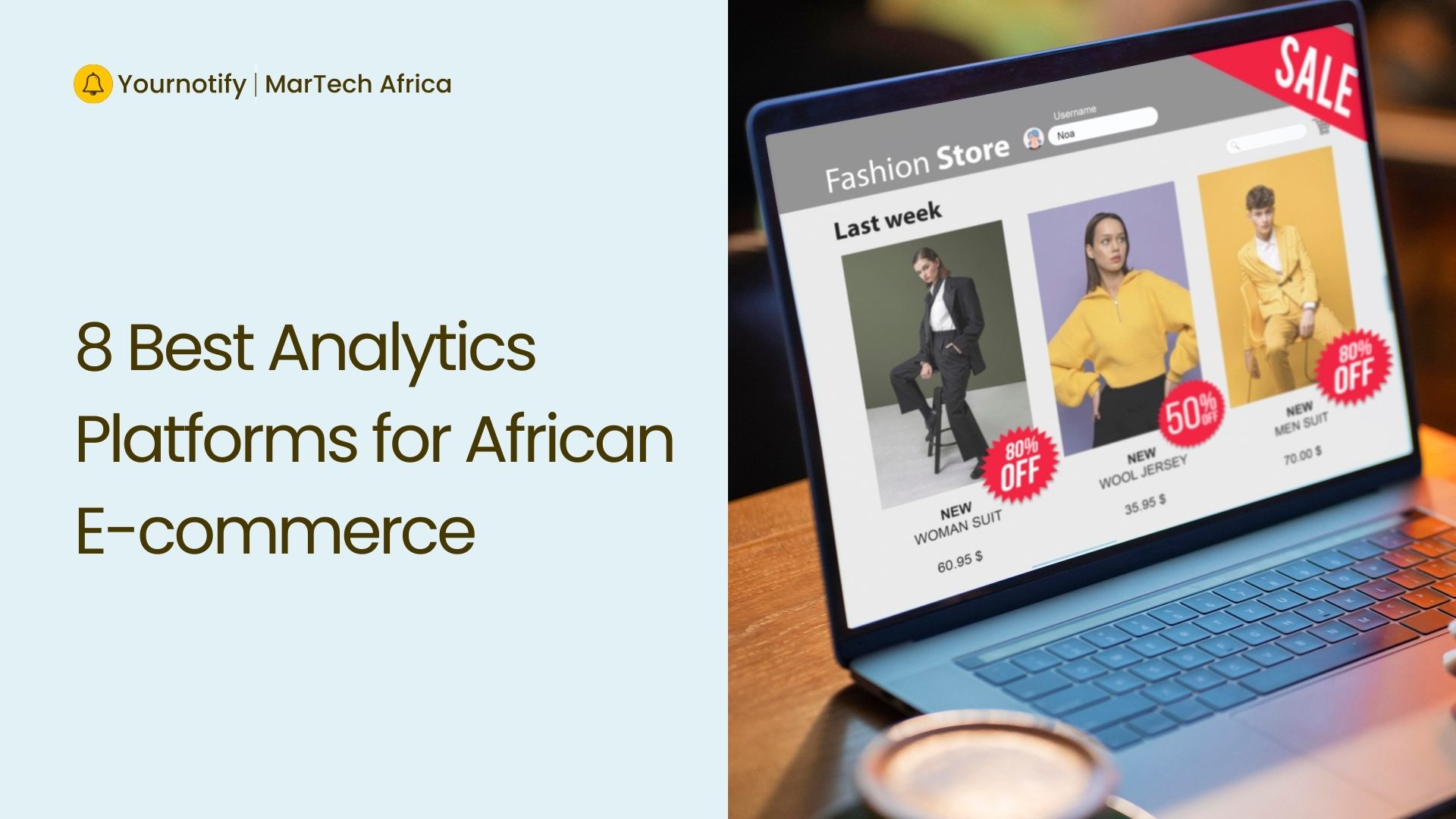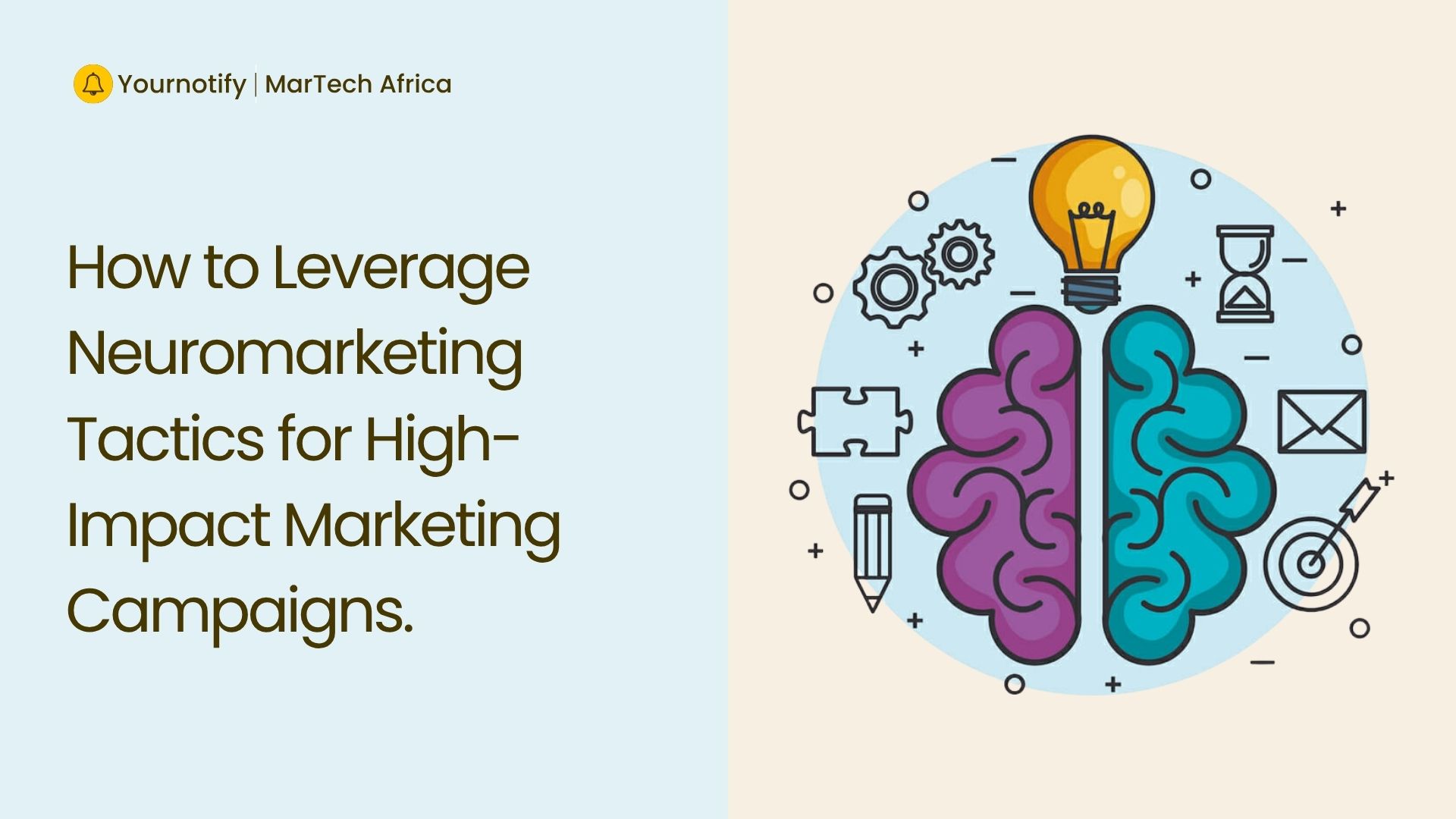Scroll through your phone today and you’ll see dozens of fintechs promising seamless transfers, skincare…

8 Best Analytics Platforms for African E-commerce Businesses
The African e-commerce market is booming, projected to surpass $75 billion by 2025, while others suggest a more modest projection around $40.5 billion by 2025. Additionally, the number of e-commerce users is expected to top 500 million by 2025. This rapid growth brings its own challenge which is tied majorly to understanding consumer behavior across fragmented infrastructures, diverse payment methods, and varying internet penetration. Analytics has become increasingly important for African e-commerce businesses, providing the visibility needed to make smarter decisions and drive sustainable growth.
Identifying where your buyers come from, predicting when they’ll repurchase can be determined by analytics platforms, helping e-commerce businesses make smarter decisions. However, which platforms are best suited for African realities where cash-on-delivery, mobile money, and social commerce are as critical as traditional online payments?
Let’s explores the top analytics platforms for African e-commerce, weighing their strengths, limitations, and best use cases.
1. Google Analytics 4 (GA4)
Google Analytics is still the most popular tracking tool for e-commerce globally, and its latest version, GA4, is especially valuable for African businesses. Unlike the old session-based model, GA4 uses an event-driven approach, which makes it easier to understand customer journeys across multiple touchpoints, that’s browsing on a website, interacting through an app, or even completing offline conversions if integrated properly. This flexibility allows merchants to dig deeper into customer behavior without being limited to page views.
Key Features:
- Event-driven data (beyond just pageviews)
- Seamless integration with Google Ads for remarketing
- E-commerce tracking: product views, cart additions, purchases
- Free, scalable, and widely supported
In Africa, GA4 is a practical choice because it works well for businesses running both social and website-based sales strategies. It’s lightweight, making it useful for SMEs who may not have advanced systems in place. However, it does require some technical knowledge to set up properly, and internet outages can sometimes affect real-time reporting.
2. Meta (Facebook & Instagram) Analytics
Social commerce has become a cornerstone of African e-commerce. Many business owners begin their journey on Facebook Shops or by selling through Instagram DMs before moving to fully developed online stores. For such businesses, Meta’s analytics is indispensable because it offers insights into ad performance, customer demographics, and conversions across Facebook, Instagram, and Messenger.
Key Features:
- Ad performance insights across Facebook, Instagram, and Messenger
- Custom audiences & lookalike modeling
- Conversion tracking via Pixel or Conversions API
- Strong social commerce integration
In markets like Nigeria, Kenya, Ghana, and South Africa, where mobile-first browsing dominates, Meta analytics is particularly effective. It’s essential for businesses relying on Facebook and WhatsApp to close sales. The limitation, however, is that it doesn’t always capture the full customer journey when purchases conclude offline or through third-party agents.
3. Shopify Analytics & Reporting
Shopify has gained popularity among African business owners because of its ease of use and quick setup. Its built-in analytics dashboard gives sellers valuable visibility into sales performance without needing additional third-party tools. With Shopify Analytics, merchants can quickly identify best-selling products, track abandoned carts, and understand revenue sources by channel.
Key Features:
- Sales trends and top-selling products
- Customer cohorts and repeat purchase tracking
- Abandoned cart insights
- Channel-level revenue attribution
The platform is particularly useful because it integrates seamlessly with local payment gateways like Paystack, Flutterwave, and DPO, which are vital in African markets. While its basic analytics are robust, advanced reporting features are only available on Shopify Plus or via additional apps, which may be limiting for some businesses.
4. Zoho Analytics
Zoho provides a cloud-based business intelligence tool that is both affordable and customizable, an appealing combination for African SMEs that want deeper insights without enterprise-level costs. The platform makes it easy to blend data across various sources, from social media to web analytics and CRM systems, creating a holistic view of the customer journey.
Key Features:
- AI-driven insights (Zia AI assistant)
- Pre-built e-commerce dashboards
- Data blending across multiple sources (social media, web, CRM)
- White-label options for agencies
For SMEs in Africa, Zoho is often a sweet spot because they are cheaper than big platforms like Tableau but still powerful enough to deliver detailed business intelligence. Local businesses use it to connect multiple platforms, from payment systems to CRM data.
5. Tableau (by Salesforce)
Tableau is considered one of the top enterprise-grade data visualization platforms worldwide, and it has been adopted by large African e-commerce players like Jumia and Takealot. With Tableau, businesses can create highly visual, interactive dashboards that bring clarity to complex data sets. Its predictive analytics and real-time reporting capabilities make it particularly powerful for organizations managing huge transaction volumes.
Key Features:
- Advanced dashboards with interactive visualization
- Real-time reporting across multiple data sources
- Predictive analytics and AI-powered forecasting
- Scalability for large enterprises
In Africa, Tableau is best suited to major e-commerce platforms and marketplaces that handle millions of transactions across different regions. It integrates effectively with ERP and CRM systems. However, the high cost and the need for a skilled data team make it less accessible for smaller businesses.
6. Hotjar & Microsoft Clarity (User Behavior Analytics)
Understanding what happens after a user clicks on your website is critical for conversion optimization. Hotjar and Microsoft Clarity provide behavioral analytics tools that allow businesses to visualize customer journeys. They help identify where users are dropping off and what areas of the site attract the most attention.
Key Features:
- Heatmaps (scroll depth, click patterns)
- Session replays to watch real customer behavior
- Funnel analysis to identify drop-off points
- Free tiers available (especially on Microsoft Clarity)
For African businesses, these tools are particularly valuable in mobile-first markets. They can reveal why users abandon payment pages, a common challenge when dealing with mobile money or card payments. The main limitation is that they require a steady flow of website traffic to generate meaningful insights, which makes them less relevant for WhatsApp-first sellers.
7. Paystack & Flutterwave Dashboards (Payment Analytics)
Payments form the backbone of African e-commerce, and payment gateways like Paystack, Flutterwave, and DPO offer analytics that merchants can use to better understand customer spending alongside payment processing. Their dashboards reveal transaction volumes by region, customer frequency, and fraud patterns.
Key Features:
- Transaction volumes by geography and payment method
- Chargeback and fraud detection
- Customer purchase frequency
- Mobile money and card payment insights
These platforms are designed with Africa’s diverse payment systems in mind, providing insights focused on local realities. The only limitation is that payment analytics alone don’t capture the full customer journey from discovery to conversion.
8. Power BI (Microsoft)
Microsoft Power BI offers a balance of affordability and power, making it a strong choice for African corporates and regional retail chains. It allows businesses to combine data from multiple sources, including e-commerce platforms, CRMs, and ERPs, into interactive dashboards.
Key Features:
- Cloud and desktop BI dashboards
- Integration with Excel (familiar to African SMEs)
- Real-time updates from e-commerce platforms, CRMs, and ERPs
- AI-powered insights
Its integration with Excel makes it easier for African SMEs to adopt since many teams are already comfortable with Microsoft tools. Compared to Tableau, Power BI is more affordable and less resource-intensive, though it is still best suited for medium-to-large businesses.
Choosing the Right Analytics Platforms for African E-commerce
There’s no one-size-fits-all. The best analytics platform depends on your business stage, infrastructure, and goals:
- Startups/SMEs: Google Analytics 4, Facebook Insights and Payment dashboards
- Scaling brands: Shopify Analytics, Hotjar/Clarity and Zoho Analytics
- Enterprises/Marketplaces: Tableau or Power BI, GA4 and Payment dashboards
Conclusion
African e-commerce is complex because customers may discover you on Instagram, order via WhatsApp, pay through M-Pesa, and expect delivery somewhere else. Without analytics, it’s impossible to see the full journey, optimize operations, or scale efficiently. The platforms above provide the visibility needed to navigate these realities. If you’re a small merchant or a marketplace spanning multiple countries, the right analytics stack is your competitive edge.
Related Content


